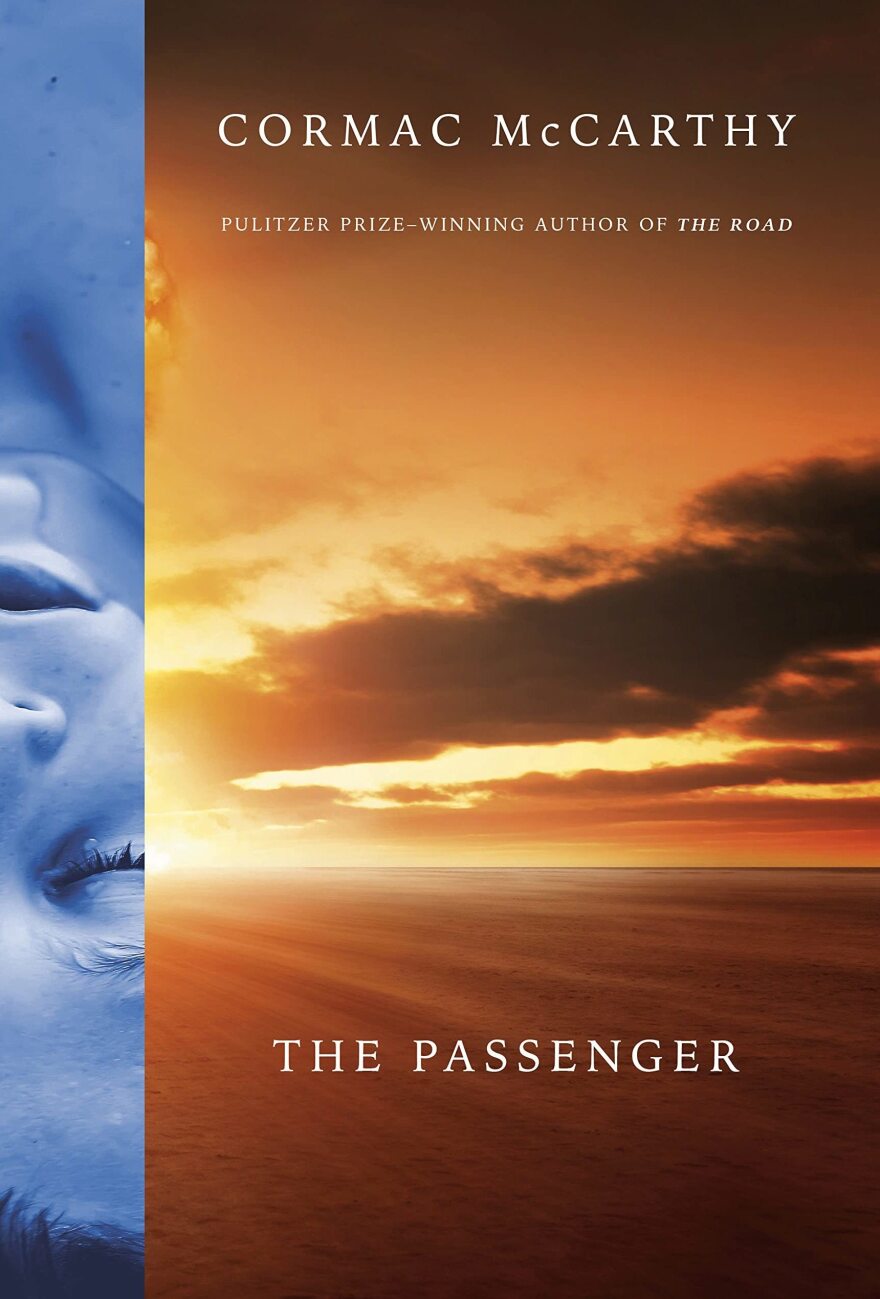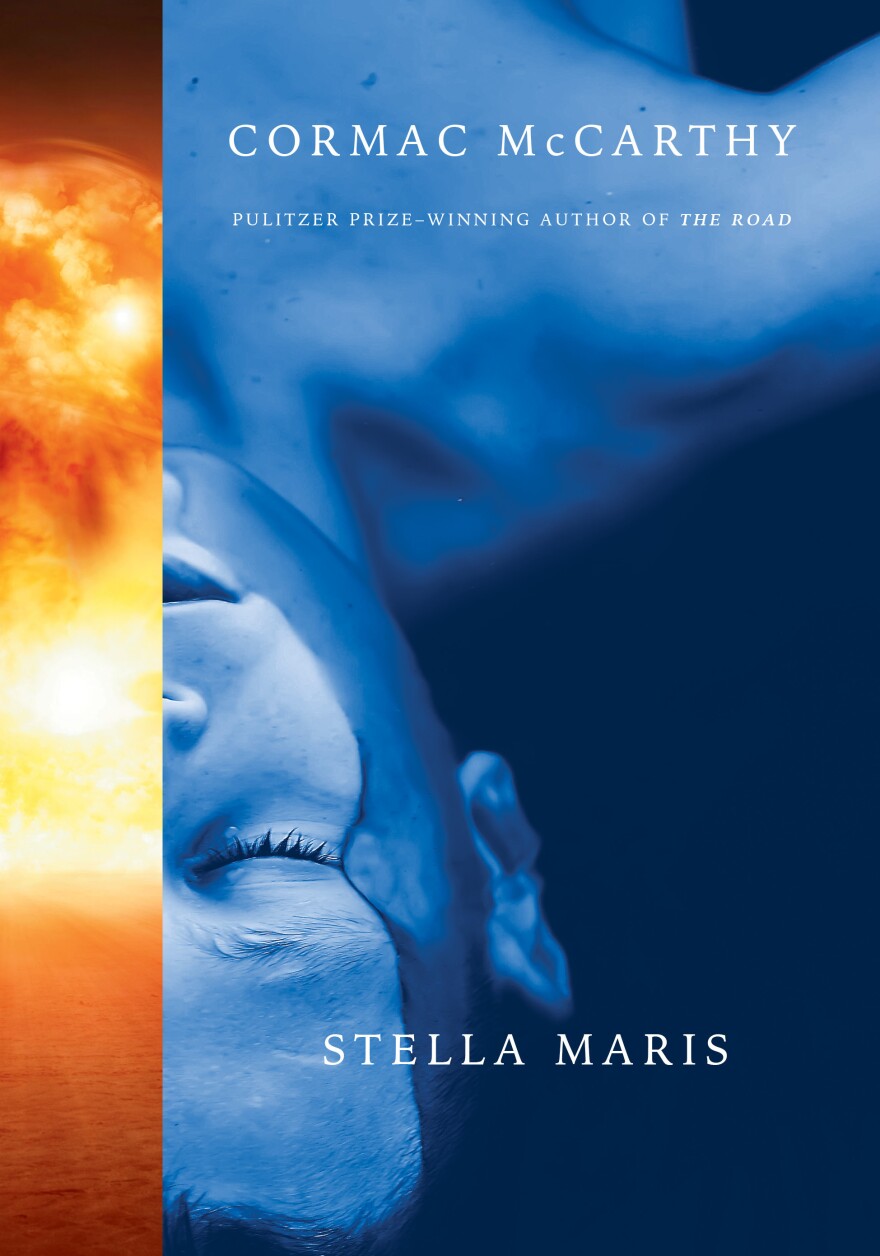Devoted Cormac McCarthy fans who have been waiting 16 years for new work from the renowned American writer are in for a surprise.

The reclusive author's two new interconnected novels — being released on Oct. 25 and Dec. 6, respectively — are hard to categorize.
The first book, The Passenger, opens with a mysterious plane crash at sea that's searched by a neurotic salvage diver who's obsessed with his sister. The entire second book, Stella Maris, consists of erudite conversations between that sister, who happens to be a mathematical genius, and a therapist in the psychiatric hospital where she's committed herself.
By all accounts, McCarthy has been working on them for at least four decades.
"Eight years ago, it was so cloak-and-dagger that we were working on these books because McCarthy fans are rabid and any whiff of there being new books is going to be huge news," says Jenny Jackson, executive editor at Knopf, who began working with him in secret in 2014. "We'd walk down the hall and hand off manuscripts in person. And I wasn't telling anyone what we were working on."
For the interview, Jackson comes to the Napoleon House, a venerable watering hole in the French Quarter of New Orleans — where McCarthy lived as a young, penurious writer. The protagonist in The Passenger is a troubled commercial diver named Bobby Western who frequents the Napoleon House for rambling discourses with eccentric buddies.
"At the beginning," Jackson says, "there's this big cast of boisterous characters and they're all working as divers and having drinks together and going out to restaurants. And then at the end they're each kind of on their own singular journey."
Neither of these two new books contains the savagery and bloodletting McCarthy readers have come to expect. There's less action overall and more dialogue. Readers may wonder if McCarthy has mellowed now that he's 89 years old.

The breathless blurb on the back cover of The Passenger reads: "A sunken jet. Nine passengers. A missing body...A salvage diver pursued for a conspiracy beyond his understanding." But this is not a fast-paced crime thriller like No Country For Old Men, which became an Oscar-winning screenplay for the Coen Brothers.
The Passenger starts out as a who-dun-it but then veers into Bobby's metaphysical musings.
"When you're Cormac McCarthy and you've written The Road, what on earth can you do next except tackle God and human consciousness?" Jackson asks.
The Road is McCarthy's best-selling last novel, released in 2006, about a father and son's harrowing journey among latter-day cannibals in a post-apocalyptic landscape. It won a Pulitzer.
McCarthy described the genesis of The Road in his only broadcast interview, granted to Oprah Winfrey in 2007. He says he happened to be in El Paso with his young son.
"I just had this image of these fires up on the hill and everything being laid waste and I thought a lot about my little boy. And so I wrote these pages and that was the end of it. And then about four years later I was in Ireland and I woke up one morning and realized it wasn't two pages, it was a book."
The new paired books are more dense than dark. Notably, they reflect McCarthy's love, and thorough understanding, of theoretical physics and mathematics. He has said, in his few interviews, that he seeks out the company of scientists at the Santa Fe Institute near his home in New Mexico.
Determined McCarthy fanatics have found advanced copies of the books, and they have provoked strong reactions. Some McCarthy aficionados were interviewed in September at a Cormac McCarthy conference in Savannah, Georgia.
"The novels explore all these aspects of human mental behavior. I think they're just marvelous," says Diane Luce, former president of the Cormac McCarthy Society.
And Bryan Giemza, literature professor at Texas Tech University, says: "In some ways, they're flawed. They are likely to be inscrutable to a lot of people. Let's just say they're not my favorite novels."
A third early read, Lydia Cooper, English professor at Creighton University, says: "They are brain teasers, but they're also really compelling. The characters are really rich and fascinating. I think people are going to love them or hate them."
One of the organizers of the conference in Georgia was Stacey Peebles, an English professor who teaches a McCarthy course at Centre College, and is editor of the Cormac McCarthy Journal.
"I've had students coming by my office. They say, 'Are you going to teach the new ones? I'm so excited.' "
Peebles has also read both new books.
"We've been waiting for these a long time," she says. "There's always the possibility that you're going to read something new and be disappointed. But I read 'em once. I read 'em again. And I'll probably keep reading 'em. I mean, all of McCarthy's works have sentences that'll just stop you cold, but these have a lot of those."
Here's one of those sentences, from The Passenger (you can read a longer, exclusive-to-NPR excerpt from Stella Maris here):
"God's own mudlark trudging cloaked and muttering the barren selvage of some nameless desolation where the cold sidereal sea breaks and seethes and the storms howl from out of that black and heaving alcahest."
McCarthy — who still composes on a manual typewriter — is considered one of the greatest and most influential writers in the English language.
"I began to notice fairly early on that a lot of these students were writing like Cormac McCarthy," says Texas novelist and historian Stephen Harrigan, who taught a fiction writing course at the Michener Center for Writers at the University of Texas at Austin. He recalls with a chuckle, "They were writing with strange locutions like, 'He rode isolate into the darkling plain.' That kind of language. And this Old Testament archaic usage creates a kind of spell, particularly for young writers."
The McCarthy spell is about to be cast again, and not just for readers but for researchers.
Cormac McCarthy's literary papers are archived in a locked cabinet in the Witliff Collections at Texas State University in San Marcos.
"It's about a hundred boxes of Cormac material that we have here," says Steve Davis, literary curator at the Witliff, as he rolls open the cabinet. "His collection begins with his first book, Outer Dark," and it ends with early drafts of The Passenger.
The last box has been restricted for 15 years, since the Witliff acquired McCarthy's coveted papers, and McCarthy scholars have already been lining up to delve into it. The final box will be opened the same day The Passenger goes on sale — but Davis offered a sneak preview.
"This is the box for the new novel, The Passenger," he says, "and we're gonna pull out this first big folder which says, 'The Passenger, old first draft. Typescript and photocopied pages, heavily corrected in pencil.'"
Perhaps the contents of this box will reveal how Cormac McCarthy's challenging new novels evolved, and why he wrote them.
Copyright 2022 NPR. To see more, visit https://www.npr.org.













